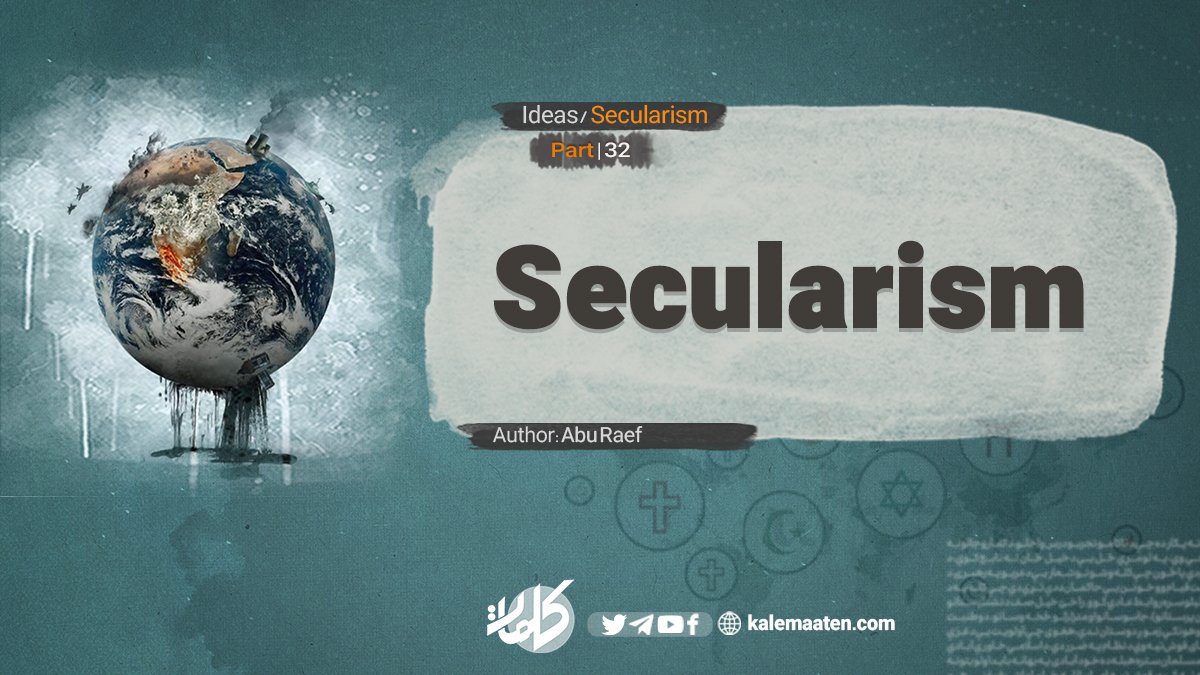Author: Abu Raef
Secularism (Part 32)
Secular Economic Ideologies
3. The Communist Economic Theory
In contrast to the Physiocratic and Capitalist doctrines, which were based on nature and individual motivations, the Communist economic theory was developed and dominated both Western and Eastern societies. This theory is fundamentally based on collective ownership and completely rejects private ownership. According to this ideology, the ownership of objects and assets is public and social, and individuals are paid only according to their labor. The responsibility for overseeing properties and their ownership belongs to the state.
The founder of this theory, Karl Marx, considered the economy as the source and foundation of every belief and action. This theory fundamentally denies religion and regards the “god” of the world as the economy and materialism.
The Current Economic Reality of the West
The truth of the Western world’s economy today is that it has separated itself from religion, and in a sense, Europe has disbelieved in Almighty Allah in the realm of economics, becoming a slave to materialism, wealth, and the pursuit of riches. Today’s Western man has forgotten his spirit, darkened his heart, and degraded his emotions, all for the sake of bodily comfort, fulfilling physical desires, and immersing himself in transient worldly goods.
The scholar Muhammad Asad writes: “The ordinary European, whether a democrat or a fascist, whether a capitalist or a communist, whether a producer or a thinker, knows only one true religion: the worship of material progress. From his point of view, there is only one goal in life, and that is to make life easier. The symbols of this religion are large factories, cinemas, chemical laboratories, dance bars, power plants, and similar establishments.”
In this way, Europe’s economy, like its beliefs, has succumbed to secularism, and it has distanced itself from religion influencing economic matters.
The Secularization of Science in European Society
Another significant aspect of Western and European society influenced by secularism and the separation from religion was science. The primary and crucial reason for the secularization of science in European and Western societies was the tyranny of the church and its conflict with science, thought, and reason. The erroneous views of the church regarding historical events, the creation of beings, and its interpretations of the universe—clearly contradicting scientific principles—were the fundamental causes of science becoming secular and detached from religious teachings.
As a result of the various and continuous opposition from the church to scientific research and discoveries, a strong and deep movement arose against religion and revelation. A wave of rejection and repudiation of religious teachings and anything associated with religion spread throughout Europe. A theory, originally proposed by Alfred Whitehead, became popular among Europeans: “In every issue where science and religion have conflicted, science has been right, and religion has been wrong.”
This theory was based on the numerous defeats the church had suffered at the hands of science, and the church’s inability to withstand scientific discoveries became an undeniable fact for them.



